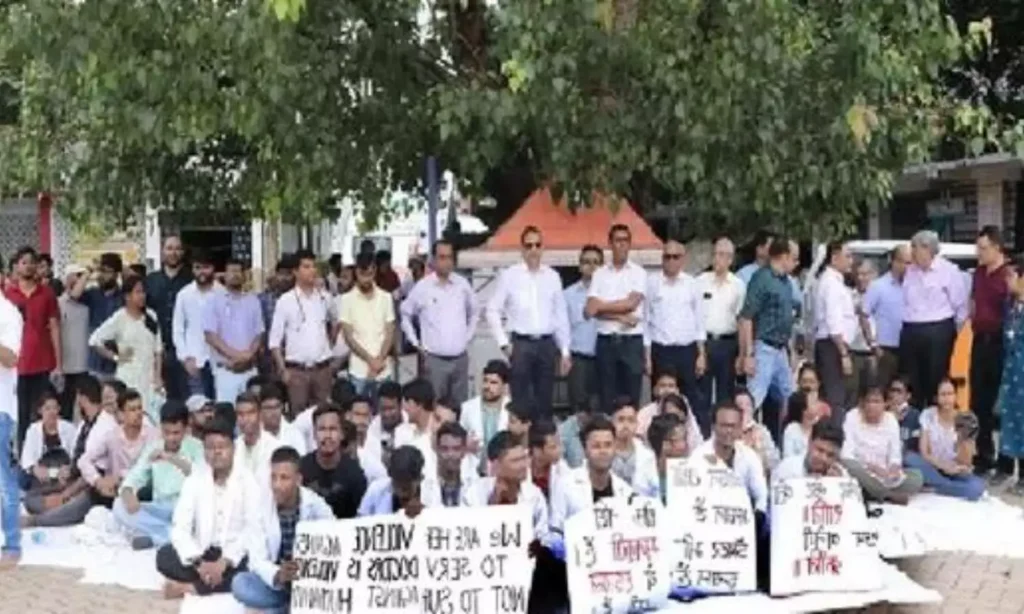
Dhanbad, Jharkhand: Medical services at Shaheed Nirmal Mahato Medical College and Hospital (SNMMCH) came to a grinding halt for over eight hours on Thursday after a senior resident doctor was allegedly assaulted by the relatives of a patient who died following a snakebite.
The incident, which occurred late Wednesday night, led to a complete shutdown of emergency services, as doctors launched a strike from 2 a.m., protesting the attack and demanding strict action against those responsible.
Tragedy Followed by Turmoil
According to hospital officials, the young female patient had been admitted to the paediatric department after being bitten by a snake. Despite emergency treatment, she succumbed to the venom. In the aftermath, her grieving family accused the hospital of medical negligence and allegedly physically assaulted the doctor on duty.
Strike Halts Emergency Care
Outraged by the attack, hospital doctors refused to attend to patients, affecting all departments, including the emergency and OPD wings. Even critically ill patients were turned away, forcing many to leave the hospital without receiving medical attention.
Doctors demanded:
- Immediate registration of an FIR
- Arrest of those involved
- Better security arrangements for medical staff
Police and Hospital Administration Respond
Officials from Saraidhela police station rushed to the hospital and tried to calm tensions. However, doctors insisted they would not resume work without guarantees of their safety.
Eventually, hospital Superintendent Dr. D.K. Gindourian intervened, holding talks with the striking doctors. Only after his assurances did doctors begin gradually resuming duties, with normalcy restored by Thursday afternoon.
Alarming Trend of Violence Against Medics
This incident adds to a disturbing trend of rising violence against healthcare professionals across India. Doctors have repeatedly flagged the lack of security, especially in government hospitals, urging authorities to implement stronger legal and institutional safeguards.
The medical fraternity, once again, finds itself grappling with questions of safety even as it remains on the frontlines of patient care.

